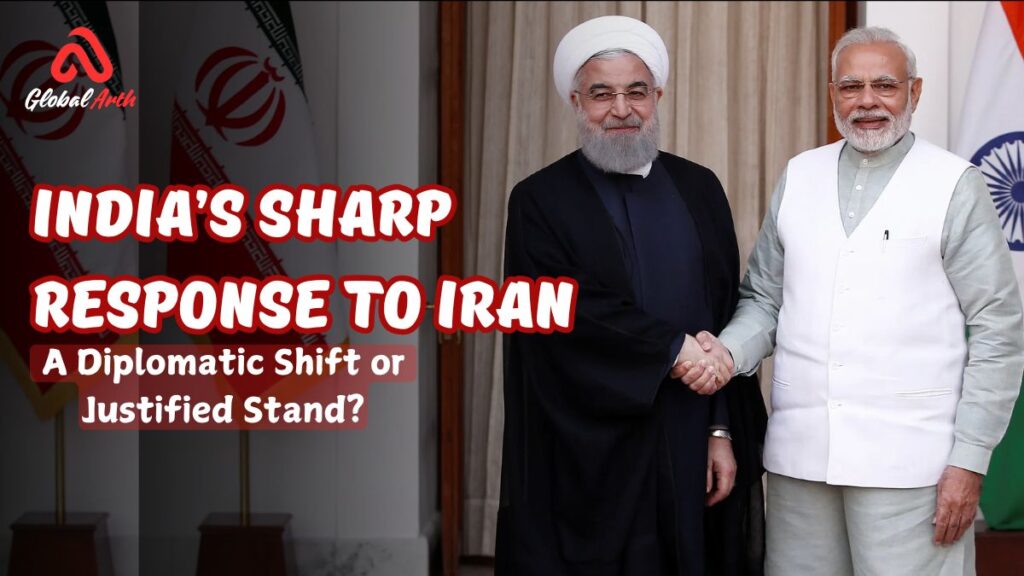India’s recent response to a tweet by Iran’s Supreme Leader, Sayyid Ali Hosseini Khamenei, has sparked In a surprising turn of events, India-Iran relations have been thrust into the spotlight after Iran’s Supreme Leader, Sayyid Ali Hosseini Khamenei, made comments suggesting that Muslims in India are suffering, alongside those in Gaza and Myanmar. This statement came via a post on X (formerly Twitter), sparking a swift and stern response from the Indian government.
India’s Ministry of External Affairs (MEA) wasted no time in issuing a statement, calling Khamenei’s remarks “misinformed” and “unacceptable.” India made it clear that any country commenting on the state of minorities in India should “look at their own record first.” within and globally. The Supreme Leader’s tweet placed India alongside Gaza and Myanmar as regions where Muslims are “suffering,” a comment that did not sit well with New Delhi. India, known for its usually diplomatic tone, responded strongly and swiftly, calling the remarks “misinformed” and “unacceptable.”
The Backstory:
Iran’s Supreme Leader tweeted, “We can’t consider ourselves Muslims if we are indifferent to the suffering of Muslims in Myanmar, Gaza, India, or any other place.” This statement triggered a sharp reply from India’s Ministry of External Affairs (MEA), which issued a strong rebuttal within a few hours.
The official statement from India was direct: “Countries commenting on minorities are advised to look at their record before making any observations about others.” This remark signaled a change in India’s diplomatic approach, which has traditionally been more restrained.
India-Iran Relations in Context:
India and Iran have maintained strong bilateral relations. One of the key projects binding the two nations is the Chabahar port on Iran’s southeastern coast. This port is critical for India’s trade routes, allowing it to bypass Pakistan and connect with Afghanistan and Central Asia. Just earlier this year, India signed a 10-year agreement with Iran to develop and run this port.
So, why did Iran’s Supreme Leader make such a bold statement against a country with which it shares significant diplomatic and economic ties? One theory suggests that Iran is seeking solidarity from the global Muslim community as it faces increased international pressure, particularly with its nuclear missile program potentially facing Western sanctions.
India’s Strong and Swift Response:
What makes India’s reaction noteworthy is its speed. Typically, responses from the Ministry of External Affairs take 2-3 days. This time, however, India replied within hours, showcasing a shift in how the country is handling narratives around its treatment of minorities. For many, this quick response is indicative of India’s growing intolerance toward what it sees as “fake narratives.”
India’s use of the word “deplore” in its official statement is another indication of the strength of its stance. Diplomatic language is often measured, and terms like “deplore” are reserved for serious incidents. In this case, it signals that India is not willing to let such comments slide easily.
Internal Issues in Iran:
On the flip side, Iran has its internal issues, which India subtly hinted at. Recent protests in Iran, particularly around the death of Mahsa Amini for not adhering to the country’s strict hijab laws, have brought the nation’s human rights record into question. While India refrained from directly criticizing Iran on this front, it reminded the international community that no country is beyond reproach when it comes to the treatment of minorities.
The timing of Khamenei’s comments is also worth considering. With Iran facing domestic challenges, such as economic hardships and internal unrest, it’s possible that these remarks were aimed at garnering support from the broader Muslim world.
Why Did Khamenei Target India?
One pressing question that arises is why Khamenei targeted India specifically. India has been seen as a ‘soft power,’ often choosing diplomacy over confrontation. For instance, last year, when a Maldivian minister made an offensive remark about Prime Minister Modi, India’s response was muted. This has led Khamenei to believe that his comments would be met with similar silence. However, India’s robust reply suggests that times have changed.
Another theory suggests that Iran is feeling the pressure of upcoming nuclear tests, which lead to sanctions from Western nations. To counterbalance this, Iran is trying to align itself more closely with other Muslim nations by highlighting issues like Gaza and Rohingya.
The Road Ahead for India and Iran:
Despite the current tensions, both nations have reasons to keep their diplomatic ties, particularly given the Chabahar project’s strategic importance for India. Yet, the bigger question is how this recent exchange will affect future relations.
Will this diplomatic spat escalate, or will both nations move ahead, focusing on their mutual interests?
What Do You Think?
Is India’s strong response justified, or was there a more diplomatic way to handle Khamenei’s comments?
Do you think Iran’s remarks were part of a larger political strategy?
We would love to hear your thoughts! Comment below and share your opinions. Don’t forget to like this article if you found it informative, and like for more such updates.

